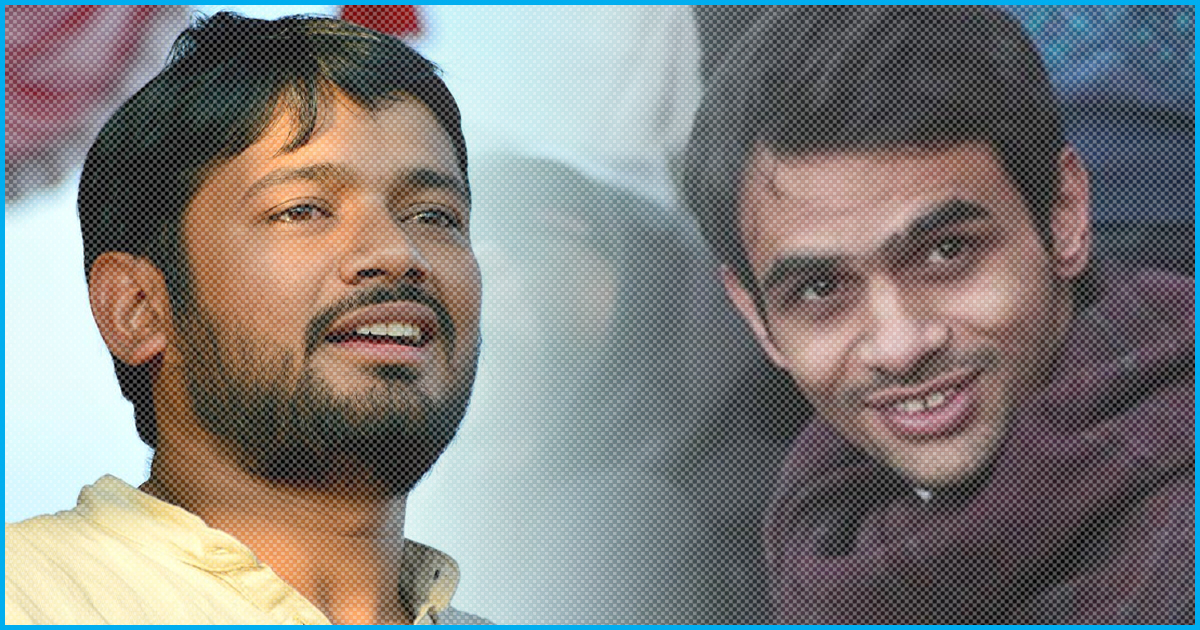
JNU Sedition Row: Chargesheet Remains Unaccepted, Court Tells Delhi Police To Get Sanction From State Govt To Prosecute
6 Feb 2019 2:37 PM GMT
In a recent development in Jawaharlal Nehru University sedition row, the trial court has given the Delhi police time till February 28 to procure the sanctions needed to prosecute former JNU students Union president Kanhaiya Kumar, student activist Umar Khalid, Anirban Bhattacharya and seven others, who have been named in the sedition case for allegedly shouting anti-national slogans in an event that took place in 2016.
Under the Code of Criminal Procedure, any investigating agencies have to take approval from the state government while filing charge sheet in sedition cases. However, until now the Delhi government has not given any permission to state police to prosecute Kanhaiya and others, reported the Hindustan Times.
Court slammed the police
On Wednesday, the court told the police to get the sanction and in order to get it was asked to go to the concerned authorities. Meanwhile, the police informed the court that the sanctions are pending with the Delhi government and are expected in a matter of days. To this, the court said, “Authorities can’t sit on file for an indefinite period.”
For now, there are a lot of questions revolving around the Delhi government’s position on the issue. However, some authoritative sources told The Indian Express on the condition of anonymity that because of the nature of the charges the Home Department went to the Law Department, to seek clarity on what the “guidelines” are. According to the Home Department, a similar nature dates back to 1982.
Earlier, on January 19, a Delhi lower court had pulled up the police over the filing of chargesheet filing in an almost three-year-old case without procuring requisite sanctions. This came days after the Delhi police had named former JNU Students Kanhaiya Kumar, Umar Khalid and others in the 1,200-page chargesheet for allegedly raising “anti-national slogans” at JNU campus on February 9, 2016, reports The Indian Express.
“You don’t have approval from the legal department. Why did you file the charge sheet without approval?” a Delhi court asked the police, as reported by The Quint. The police further told the court that they will get a sanction approval in the next 10 days.
The chargesheet
The others who have been named in the Chargesheet are Kashmiri residents – Aquib Hussain, Mujeeb Hussain, Muneeb Hussain, Umar Gul, Rayees Rasool, Basharat Ali and Khalid Bashir Bhat.
The accused have been charged under Indian Penal Code(IPC) Section 124 A(sedition), 323(voluntarily causing hurt), 465(forgery), 471(using as genuine, forged document), 143 (punishment for unlawful assembly), 149(unlawful assembly with common object), 147(rioting) and 120B (criminal conspiracy).
The Delhi police reaches Patiala House court to submit charge sheet in JNU sedition case. @THNewDelhi @the_hindu pic.twitter.com/aEVtGuCrpY
— Saurabh Trivedi (@saurabh3vedi) January 14, 2019
Just now: Delhi Police has come with a chargesheet in a trunk in JNU sedition case. @IndianExpress pic.twitter.com/ImHOLtL3PJ
— Abhishek Angad (@abhishekangad) January 14, 2019
Chargesheet filed under various sections of Indian Penal Code (IPC) including 124A 323, 465, 471,143, 149, 147, 120B, in 2016 JNU sedition case. https://t.co/GYFT5G9sni
— ANI (@ANI) January 14, 2019
The timing of the Chargesheet
After the chargesheet was filed, Kanhaiya Kumar, raised questions on the timing of the Chargesheet. He claimed that the chargesheet has been filed just before the Lok Sabha elections, indicating that it is politically motivated.
“If the news is true that a charge sheet has been filed, I would like to thank police and Modi ji. The filing of chargesheet after three years, ahead of elections clearly shows it to be politically motivated. I trust the judiciary of my country,” said Kumar while talking to the ANI.
Kanhaiya Kumar, former JNU president: If the news is true that a chargesheet has been filed, I would like to thank police and Modi Ji. The filing of chargesheet after 3 years, ahead of elections clearly shows it to be politically motivated. I trust the judiciary of my country. pic.twitter.com/eGVy40SYDT
— ANI (@ANI) January 14, 2019
A little background
In 2016, after a massive uproar over the JNU issue, the Delhi police had arrested Kumar, Khalid and Bhattacharya for allegedly raising “anti-national” slogans during the JNU event. Later, all three were released on bail. The case was first registered at Vasant Kunj (north) police station on February 11, 2016, under IPC Section 124-A (sedition), it was later transferred to the Delhi Police special cell. The event titled “The Country Without a Post Office”, had been organised to “stand in solidarity with the struggle of the Kashmiri people for their democratic right to self-determination” and, among other things, to protest the ‘judicial killing’ of Afzal Guru, who was hanged in 2013 after being convicted in the attack on Parliament in 2001. The event was organised on the Afzal’s third death anniversary.
The event was opposed by right-wing student party ABVP.
Also Read: Two And A Half Years On, Delhi Police Yet To File A Charge Sheet In JNU Sedition Case
 All section
All section













